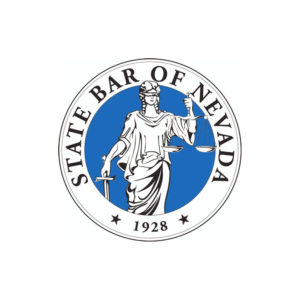Artificial Intelligence and the Legal Industry
With technology’s exponential growth comes concerns that stem from a lack of understanding or a misconception. And artificial Intelligence (“A.I.”) is no exception.
Overall, A.I. is a tool used to help alleviate workloads and handle menial tasks to free up people’s time to handle other matters. If you have questions about how artificial intelligence can be or is used in your case, contact an attorney today.
What Is Artificial Intelligence?
Artificial Intelligence, or A.I., is a computer system that can formulate answers to questions from a database. This differs from other systems in that, instead of giving a predetermined output written by a human, the system will formulate an answer of its own.
What this means is that the A.I. system writes its own material. Whether it’s a book report, blog post, ideas for online or social media content, or a movie script, all of these are possible and have been created by A.I.
Now, this isn’t meant to be an end-all solution. Even creators of the programs have stated that outputs can vary and look convincing, but they can have misleading information.

ChatGPT Interface
For a free legal consultation, call (725) 900-9000
ChatGPT: the Newest Form of A.I.
Today’s hot topic is ChatGPT, or “Chat Pretraining Transformer,” created by OpenAI. This comes in the form of a chatbot that differs from those seen on websites or apps. Typical chatbots have preset answers and, when asked questions that reach beyond those answers, redirect to a human.
ChatGPT is created via a learning system that has molded the bot into giving intelligent answers to complex questions or requests. Common requests have included:
- Youtube video ideas
- School papers
- Marketing campaigns
- Code debugging
- Writing emails
- Drafting contracts
ChatGPT is also smart enough to interpret items not to be answered, such as crimes or certain topics purposefully blocked by OpenAI. When asked about robbing homes or similar topics, ChatGPT will recommend a different action rather than eliciting instructions.

Robot Guiding a Signature
What This Means for the Legal Industry
One of the primary concerns for the legal profession is the fear of the replacement of lawyers with robots. We have already seen the internet used to store templates and generate documents for items a lawyer is typically hired to draft. However, ChatGPT isn’t a replacement but a tool.
The chatbot has the capability to write information in regard to case decisions, document generation, and even memos about legal principles. The issue chatbots will always have is the ability to advise. Chatbots lack the proper insight to consider the specific facts of your case to provide personalized advice on your case like an attorney can.
Your attorney can use the chatbot to simplify many of the minor tasks and reduce costs placed on you for expenses or hourly fees. They can draft the document using the chatbot and then review, correct, and add any information needed to finalize and send the document.
Click to contact our personal injury lawyers today
How to Use ChatGPT
Using ChatGPT to assist in smaller matters can be highly beneficial. These applications can help bridge the gap where lawyers aren’t always readily available, such as for matters concerning:
- Social Security payments
- Roommate agreements
- Understanding the basics of a law
Chatbots can help point users in the right direction for items like these. The primary use of the bot should be for ideas for solutions but not for the solution itself. While a bot can give seemingly complete items at first glance, they still require close attention to avoid providing misinformation.
Complete a Free Case Evaluation form now
Why A.I. Can’t Replace a Lawyer
While a chatbot has the ability to mimic the work of lawyers and other professionals, it lacks the ability to self-regulate. Lawyers are bound by a code of ethics and rules of procedure to ensure competence in representation. Chatbots, simply put, are not.
Chatbots are also unable to argue or teach. Arguments require the interpretation of a scenario and the rebuttal of those arguments.
And while a chatbot can draft items, it cannot teach the user how to use the information it drafts. The answers it provides may seem to make sense but can still be faulty – and these faults can ultimately cause you to lose your case. Van Law Firm is the better solution, as we ensure nothing falls through the cracks and costs you your potential compensation.
No obligation consultations are always free.
Let Us Help You! Call Now: (725) 900-9000


